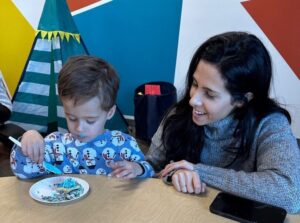
A child’s early language skills are a crucial part of their development. The growth of their receptive and expressive language skills help foster their ability to effectively communicate and engage both socially and academically.
Children Learn Best Through Natural Routines
It is essential to a child’s development to expose them to a wide variety of situations in order to foster the development of their speech and language. This can happen naturally in their daily life. Simple conversations can happen during routine activities such as meals, baths, or playtime. These are ideal opportunities for parents and caregivers to embed language into meaningful conversations to facilitate ongoing language acquisition. Consistent routines in a language-rich environment benefit young children by helping them acquire new vocabulary needed to further develop their expressive and receptive language skills.
Play as a Tool for Learning Problem-Solving and Language Skills
Play, specifically pretend play, is a great opportunity for children to participate in creative thinking, problem-solving, and decision-making all while building their expressive and receptive language skills. These activities can enhance cognitive development, provide the skills needed for communication and help build a dynamic vocabulary.
Cognitive and Language Benefits of Play
Communication isn’t the only thing to benefit from childhood play. Cognitive abilities will receive a significant boost as well. Two proven play-based language strategies are narrating children’s actions during their playtime, and using pretend play scenarios as a way of introducing and practicing new vocabulary and concepts.
Receptive and Expressive Language Skills
These are essential for effective communication, as they enable an individual to understand and express their ideas, thoughts, and emotions.
Receptive language skills refer to one’s ability to understand language. Children can practice these skills every day by engaging in activities such as:
- Reading/listening to books with their parents and answering simple questions related to the story
- Hearing and following simple directions throughout play and daily routines
Expressive language skills refer to one’s ability to share ideas using a variety of modes of communication (i.e. verbal, non-verbal gestures, sign language, AAC device, written language, etc.) Children can also practice expressive language skills by telling stories, doing crafts, engaging in pretend play and cooking – just to name a few!
No Need for Fancy Toys or Planned Activities
There are simple language strategies you can use at home and throughout your everyday life. You can facilitate these opportunities while navigating your daily routines!
Speech and language skills can be encouraged by:
- Engaging in a conversational exchange
- Singing
- Narrating your child’s actions
- Playing pretend
- Looking at books together and talking about them
The Power of Parental Communication
Oftentimes, as a parent, you’re the person your child spends the most time with and so you play a vital role in their early language skills.
Parental communication can be a great model for children. Try using a variety of phrases. Instead of saying. “Look at this,” say, “I see a red shoe! Do you see a red shoe or a blue shoe?” This technique can help children gain a rich vocabulary and enhance their ability to communicate effectively.
The Art of Asking Open-Ended Questions
A child can be encouraged to express their thoughts and ideas when they’re asked open-ended questions. Instead of asking simple “yes or no” questions, parents should ask something which requires an expanded response such as, “What did you do today?” or “Tell me about your favorite toy.”
Reinforcing Children’s Attempts at Communication
Parents should reinforce their children’s language and communication skills. The emphasis ultimately should be on using positive reinforcement rather than criticizing.
If a child mispronounces a word, rather than pointing it out, simply repeat the word correctly. For example, if they say, “Far tuck,” you can say, “Oh, fire truck. Do you want to play with the fire truck?”
Expanding Children’s Language Skills Through Phrases
Modeling a variety of phrases can help expand a child’s vocabulary and enhance their ability to communicate effectively.
If your child says one word you can provide two-choices to help them learn to expand upon their initial idea. For example, if your child just says, “Park.” You can respond, “Did you go down the slide or on the swing at the park?” Allowing your child to make the choice and imitate the phrase will help develop their ability to produce expanded phrases while engaging in conversational exchanges.
How Early Language Development is Crucial for Children
Through simple everyday activities, parents can maintain a focus on supporting both receptive and expressive language skills. One of the easiest ways to help a child learn a language is just to talk to them!
It’s important as language development sets the foundation for speech, communication, and cognitive, social, and emotional growth.
Adults can help children with their language skills by:
- Narrating actions during play
- Using pretend play scenarios to introduce and practice new vocabulary
- Support their children’s efforts to communicate by actively listening to them and asking open-ended follow-up questions.
Have questions about helping your child develop their child speech and language abilities? Contact us today.









